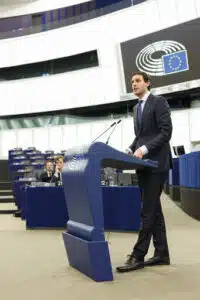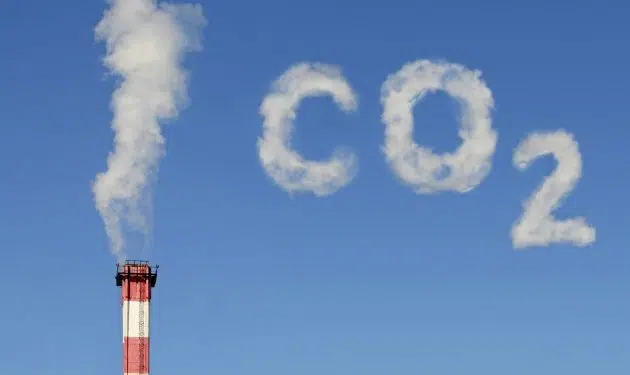Brussels – After 2030 and before 2050. At the EU Environment Council to be held next Monday 18 in Brussels, the last under Spain’s presidency at the helm of the EU, an initial informal discussion on the EU’s climate target for 2040 is scheduled over lunch between European ministers and Ottmar Edenhofer, chairman of the European Scientific Advisory Committee on Climate Change.
The European Commission plans to present in the first quarter of 2024 the proposal for an interim emissions reduction target for 2040, as set out in the European Climate Act. “There will be an initial exchange of views between ministers on how the process will unfold,” a diplomatic source confirmed this week.
The agreement in the EU on the first Climate Act of 2021 commits Brussels, among other things, to set a new interim target for 2040 and an indicative projected EU greenhouse gas budget for the period 2030-2050, i.e., how much net greenhouse gas emissions can be emitted in that timeframe without jeopardizing the Union’s commitments. After 2050, negative emissions are considered: that is, there can no longer be new ones, but the existing ones will remain. The timing of discussions for 2040 is closely tied to the five-year ambition cycle of the 2015 Paris Climate Agreement, which set a commitment to limit temperature increases to within 1.5°C. All parties to the agreement are expected to begin thinking about the next target this year in the context of the UN process, and then communicate it before the COP29 (29th UN Climate Change Conference) to be held in 2024.

Scientific advisors have suggested that Brussels cut emissions by 90 percent (compared to 1990 levels) by 2040. The advisory board has already published a report with recommendations on technological feasibility, environmental limits and risks, and international cooperation and proposed “to reduce emissions by 90 percent” compared to 1990 levels, to achieve full neutrality by 2050. In questioning before the Europarliament before being formally appointed, the commissioner for climate action, Wopke Hoekstra, promised that the Commission would prepare a thorough impact assessment and analyze different scenarios, costs, and benefits, pledging to work in line with the suggestions of the advisory committee. So he supported proposing the 90 percent reduction target by 2040, although the decision will have to be collegial (of the entire European Commission).
English version by the Translation Service of Withub




